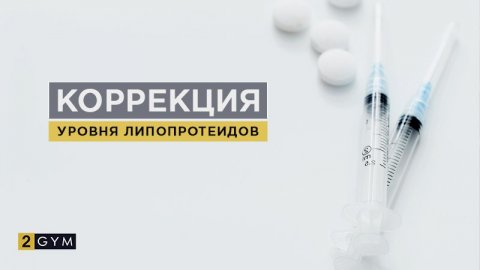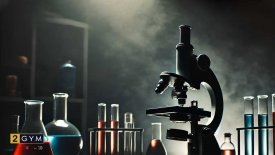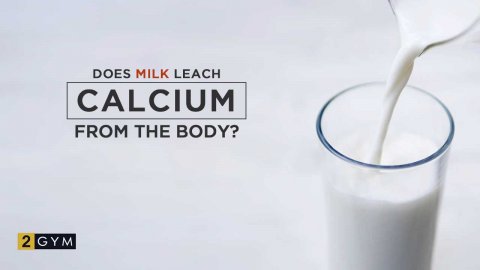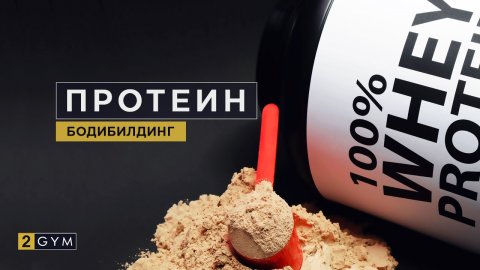But we will be exclusively interested in sexual desire – it is precisely its enhancement that we will focus on. But first, it's worth understanding what libido depends on. Directly – on the level of hormones. However, the main role here is played not by testosterone, but by dihydrotestosterone (DHT).
Hormones and Libido
Since it is testosterone that converts into DHT, we can say that libido depends on the level of the latter – not total, but free testosterone. Tests for free testosterone or DHT will allow you to most accurately assess your prospects.
But the positive effect of DHT on libido can be somewhat offset by other hormones – prolactin and cortisol.
Prolactin and Cortisol
Even approaching the upper permissible limit of prolactin can significantly weaken sexual desire and deliver a strong blow to erection.
However, too low a level of prolactin is no better in this regard. Prolactin secretion increases with alcohol abuse, use of amphetamines, opiates, cocaine, cannabis, psychotropic drugs, and antidepressants.
Prolactin production can also significantly increase under stressful conditions, anxiety, depression, severe pain, and psychosis. Cortisol affects not only libido but also erection.
The main causes of increased cortisol are stress, constant lack of sleep, chronic inflammatory processes in the body, excessive aerobic exercise. Unhealthy addiction to coffee can also raise cortisol levels.
Finally, there are medications that significantly slow down the process of converting testosterone to DHT – antiandrogens; ketoconazole and finasteride; anaprilin and metoprolol.
And it is impossible not to mention such an important factor as age: as the body ages, men's free testosterone levels steadily decline.
Libido and Erection
Increasing libido may not affect the enhancement of erection. The fact is that erectile dysfunction is not necessarily a consequence of low libido.
Persistent erection problems may result from diabetes or metabolic syndrome, cardiovascular diseases, injuries, neurological disorders, radiation exposure, or certain chemicals.
In general, without addressing the cause of erectile dysfunction, boosting libido is often pointless. Although one of the causes of erection issues is indeed hormonal imbalances.
In such a case, by increasing libido, you can indeed also get rid of erectile dysfunction. And getting rid of erectile dysfunction, in turn, can help increase libido.
The most popular remedy for solving erection problems is sildenafil, as well as its analogs – vardenafil and tadalafil.
But if you do not have erectile dysfunction, taking "Viagra" just to increase libido is not worth it – it will not help at all. And this is not an unfounded statement – many studies have been conducted regarding "Viagra."
Moreover: regular use of both sildenafil and its analogs negatively affects the body's secretion of its own testosterone. Thus, constantly resorting to these aids, you may weaken your libido.
To some extent, arginine mimics the action of "Viagra": supplements containing this amino acid can be called a weaker copy of sildenafil. The principle of action is the same: increasing the amount of nitric oxide in the blood. However, sildenafil enhances the relaxing effect of nitric oxide much more strongly.
Moreover, its main action is on the corpus cavernosum of the penis, while arginine affects the entire body. But if you overlook all this, arginine can also be called a means to improve erection.
With a big stretch, of course, which can be slightly relaxed if instead of arginine you use its precursor – citrulline.
Eliminating the Causes of Low Libido
The first step towards increasing libido is to eliminate what lowers it. Without this, further steps will not bring success. Number one on this list is constant stress, which increases the levels of both cortisol and prolactin.
It is practically necessary to completely eliminate alcohol and other stimulants. Pay enough attention to sleep.
How to Increase Libido
Be sure to take hormone tests – free testosterone, estradiol, prolactin, and cortisol. And if after all the measures you have taken, prolactin or cortisol has not returned to normal, you will have to forcibly bring them back.
Correcting Prolactin Levels
It is easiest with prolactin since there are inhibitors of its secretion. However, acting on the principle of "the more the better" is not worth it: as I said, too low a level of prolactin is no better than too high.
Correcting Cortisol Levels
With cortisol, it's more difficult – in the sense that there are no direct means to suppress its secretion. You can use dexamethasone or oxandrolone. Ordinary vitamin C can also help cope with the consequences of stress.
Increasing Testosterone Levels
Next is testosterone. Here we have two paths: "introduce" it from outside or try to increase your own. Regardless of which decision you choose, it will only be temporary: raising your own "testo" level once and for all will not work.
External testosterone – any of its esters. Injection volumes can start at one hundred and fifty milligrams per week. You can also use an oral testosterone analog – methyltestosterone, which converts to DHT even better.
And I will also note that testosterone significantly increases libido not only in men but also in women – though, it should be used with great caution.
To stimulate the secretion of your own testosterone, there is one drug – chorionic gonadotropin, and one group of drugs called anti-estrogens.
The first mimics the action of luteinizing hormone (LH), the latter simply increase LH levels. In any case, your own testosterone secretion will be seriously stimulated as a result. However, the level of "testo" in this case will definitely not exceed the upper limit of the physiological norm.
Means to Increase Libido
Bremelanotide (PT141) — this "aphrodisiac" was created primarily for women, although men can also use it. Moreover, ideally, it should be taken simultaneously by both man and woman – not forgetting that the effect can be expected no earlier than 12 hours (better to wait a full day).
This thing is very good, noticeably increasing the mood for sexual contact. However, only if you somehow manage to get a quality drug.
Instead of testosterone, you can use "Proviron" or drostanolone – these are almost complete analogs of DHT.
And there is also turinabol, which even got the nickname sex drug. However, here's the thing: turinabol itself will not give anything – it only activates the conversion of testosterone to DHT, and it must be admitted, it does this almost perfectly.
But: no testosterone – no effect from turinabol, and it should be noted that this anabolic steroid suppresses the secretion of your own "testo" very effectively.
So, using turinabol "solo" is a path to nowhere, or rather, to lower libido.
Tribulus
Contrary to popular belief, tribulus does not affect the secretion of your own testosterone. But it can increase libido – following exactly the same path that turinabol has paved for this task. However, the latter will be much more effective.
It is worth emphasizing – tribulus will help only if your testosterone level in your blood is relatively high, and your prolactin level is within the normal range.
Fenugreek
This herb is better known as fenugreek. Fenugreek's action is very unusual. It can indeed raise the level of testosterone in your blood – but not total.
The extract contains a weak 5-alpha-reductase inhibitor, which prevents the conversion of testosterone to DHT.
As a result, the total testosterone level remains practically unchanged, but the amount of biologically available testosterone increases. However, the suppression of 5-alpha-reductase could lead to a decrease in libido but:
- fenugreek is too weak an inhibitor to noticeably decrease libido;
- it increases the mood for sexual contact, so libido even rises
Maca Root
Like tribulus, maca root does not affect testosterone and estrogen levels (estradiol in men). However, the extract of the plant, also known as Lepidium meyenii, will increase libido, although this effect is quite irregular.
Personally, I would "measure seven times" before using it for anything serious. By the way, no one still knows exactly how the increase in libido occurs.
Vitamin D
Vitamin D – this is a whole group of biologically active substances, including cholecalciferol and ergocalciferol. The first is called vitamin D3 and is synthesized under the influence of ultraviolet rays, the second (vitamin D2) can only be obtained with food.
We will be interested in the first, that is, vitamin D3 – it is usually referred to as vitamin D. How can vitamin D help us? It normalizes testosterone secretion, regulates its aromatization.
That is, it can, figuratively speaking, bring your endocrine system to its senses. Of course, you should not expect too much from it, but additional intake of vitamin D will definitely not hurt.
Moreover, it is impossible to get it in the necessary amount from natural sources, especially in the autumn and winter periods.
Also read Vitamin D3 and K2 — why it's important to take them together
Causes of vitamin D deficiency and VDR polymorphism
Vitamin D and weight loss
Conclusion
There are quite a few means to increase libido. It should only be remembered that if you have serious health problems that reduce libido and impair erection, you should first deal with their elimination, and not take indiscriminately what I have told you about here.
































Log in with ( Sign Up ? )
or post as a guest
Be the first to comment.